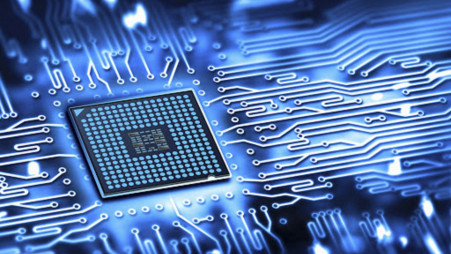Chips are down for Huawei
Huawei has already lost access to Google’s operating system Android and vital apps such the Google Maps and YouTube

From midnight today, a tectonic change will quietly take place that holds the potential of having a long term impact on the world economy and spilling over into global politics as well.
From midnight of September 14, the world's leading telecom and mobile phone company Huawei will no longer have access to US microchips. That means, effectively from last night, the US's war on technosphere with the world's second largest economy will move to a whole new front.
The US has been at war with China on three fronts for quite some years.
On the geopolitical level it wants to deny China control over the South China Sea. The maritime routes crossing the South China Sea are the busiest, most important, sea-lanes in the world. Global goods of an estimated worth of about $3.4 trillion passed through the waterways here in 2016. That was fully one-third of global shipping. The goods carried through the sea-lanes here included nearly 40% of China's total trade and 90% of petroleum imports by China, Japan, and South Korea – and nearly 6% of total US trade.
The US uses these waters to project its global power with its mighty navy regularly patrolling these same sea-lanes with the US Seventh Fleet transiting regularly between the Pacific and Indian Oceans (including the Bay of Bengal).
The Spratly archipelago, a group of islands, islets, and cays, first discovered and recorded by an western in 1843, was a whaling captain by the name of Richard Spratly, although China claims its rights on them for as long as 2000 years back. The islands are also claimed by Malaysia, Vietnam and the Philippines. Meanwhile, the US, for reasons not too hard to understand, wants China to be removed from the list of claimants.
This has evolved into a power game with the US and China both flexing their maritime muscles in the sea.
The US has backed up its military threat with trade war as well when it slapped tariffs on imports from China with retaliatory duty slammed by the Asian giant as a counterforce. Finally they have come to an agreement whereby China agreed to give in some ground by importing more of US goods, mainly the agricultural kind. But as the Covid-19 rages on, little of that reverse trade has materialised.
Finally in the technosphere, Huawei's loss of access to US microchips, a vital component of its IT products empire, is just the latest event in the two superpowers' sabre-rattling. Before that, the US had booted Huawei out of its 5G network and persuaded Britain and Australia to follow suit, soon to be followed by Canada.
As a result of the US embargo, Huawei has already lost access to Google's operating system Android and vital apps such the Google map and YouTube without which the modern mobile phone loses much of its usability and appeal looking more like a toy than anything of real use.
Huawei of course did not take that lying down and has taken countermeasures like launching its own operating system HarmonyOS as well as its own map.
Now the situation here starkly lays bare to the world how a country (the US in this case), a global leader in high tech knowledge industry, feeling threatened by the rise of a new economy can apply all its might to cut down the threat from that other country (China in this instance).
And it is also an unfolding drama of increasing intensity in this case of how an emerging economic might that is on the verge of dominating the world fights to come back. Huawei, that had become too big with its technological innovations aided by US-made microchip power, is just a victim, a fall guy, caught in the cruel melee in the game of global dominance of the new Cold War in this new century.
The September 14 midnight war also leaves us with many questions. Will Huawei be able to prevail with its operating system when Android still is the predominant operating system in 85% of all handsets sold? Many companies such as Samsung and Amazon and Microsoft have come up and failed with their own operating systems like Tizen, FireOS and Windows. Whether Huawei will succeed will depend on how many technology firms it can bring on board, how large a developer community it can sway to code all the popular apps tailored to its operating system, and of course, whether the overwhelming part of the user base will respond with kindness to its overture.
It would be naive to imagine that China had not prepared for the September 14 midnight long before. It has in recent years significantly increased its spending on technology and research although the US still leads in this field.
But China is catching up with its heavy spending in scientific research and development over the last 20 years.
Chinese biomedical research teams now rank fourth in the world for total new discoveries published in six top-tier journals, and the country spent three-quarters of what the US spent on research and development during 2015. In technology, some of its companies like Ant have made giant leaps making its presence felt all over the globe including Bangladesh.
The move to cripple China may however not be so crippling for Huawei that has a deep pocket with $53billion in reserves. Its chip making company HiSilicon business may be taken over by other Chinese tech giants like Alibaba and Tencent. Huawei may have to satisfy its insatiable need for growth in the home market.
But all these will ultimately have to come to a head when the bottom lines will be stretched.



 Keep updated, follow The Business Standard's Google news channel
Keep updated, follow The Business Standard's Google news channel















